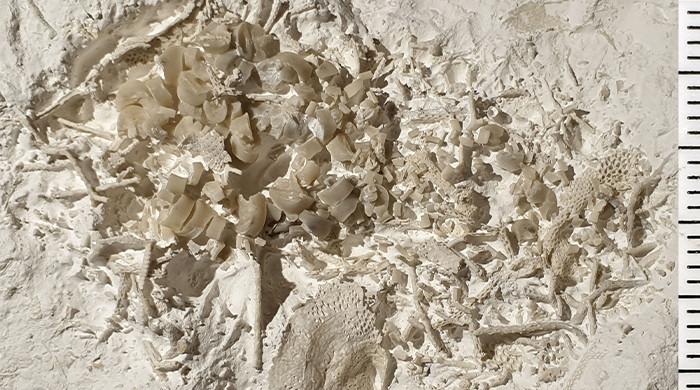COPENHAGEN: A piece of fossilized vomit from the time when dinosaurs lived has been found in Denmark, according to the Museum of East Zealand on Monday.
A local amateur fossil hunter made the discovery while walking along the Cliffs of Stevns, a UNESCO World Heritage site located south of Copenhagen.
Peter Bennicke spotted some strange fragments in a piece of chalk, which turned out to be parts of sea lily fossils.
He brought the find to a museum, where experts examined it and said the vomit came from the end of the Cretaceous period, about 66 million years ago.
Experts say the fossilized vomit includes at least two types of sea lilies. A fish likely ate them and then threw up the bits it couldn’t digest.
“This kind of find […] is very helpful when scientists try to rebuild ancient ecosystems because it shows what animals were eaten by others,” the museum explained in a press release.
Paleontologist Jesper Milan called it “a truly rare discovery” and said it helps scientists better understand the prehistoric food chain.
“Sea lilies don’t have much nutrition since they’re mostly made of chalky plates with just a little soft tissue,” he said.
“But a creature—probably a fish—ate these sea lilies that lived at the bottom of the ancient sea and then spit out the hard parts,” he added.
